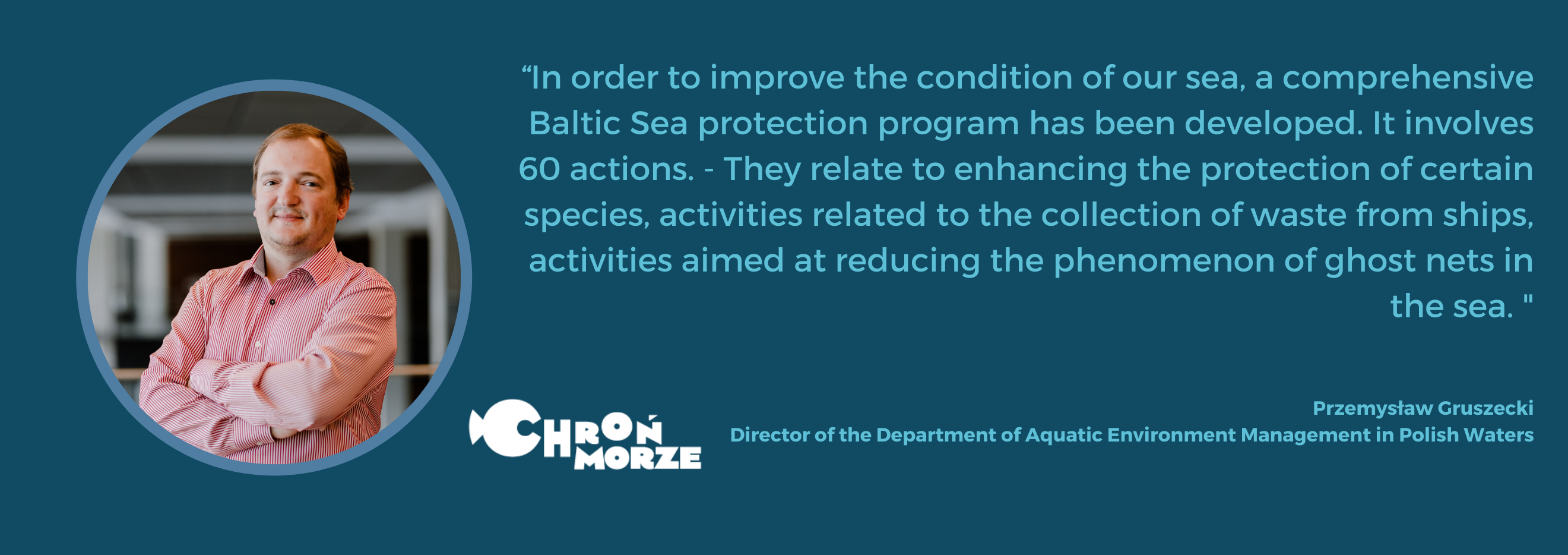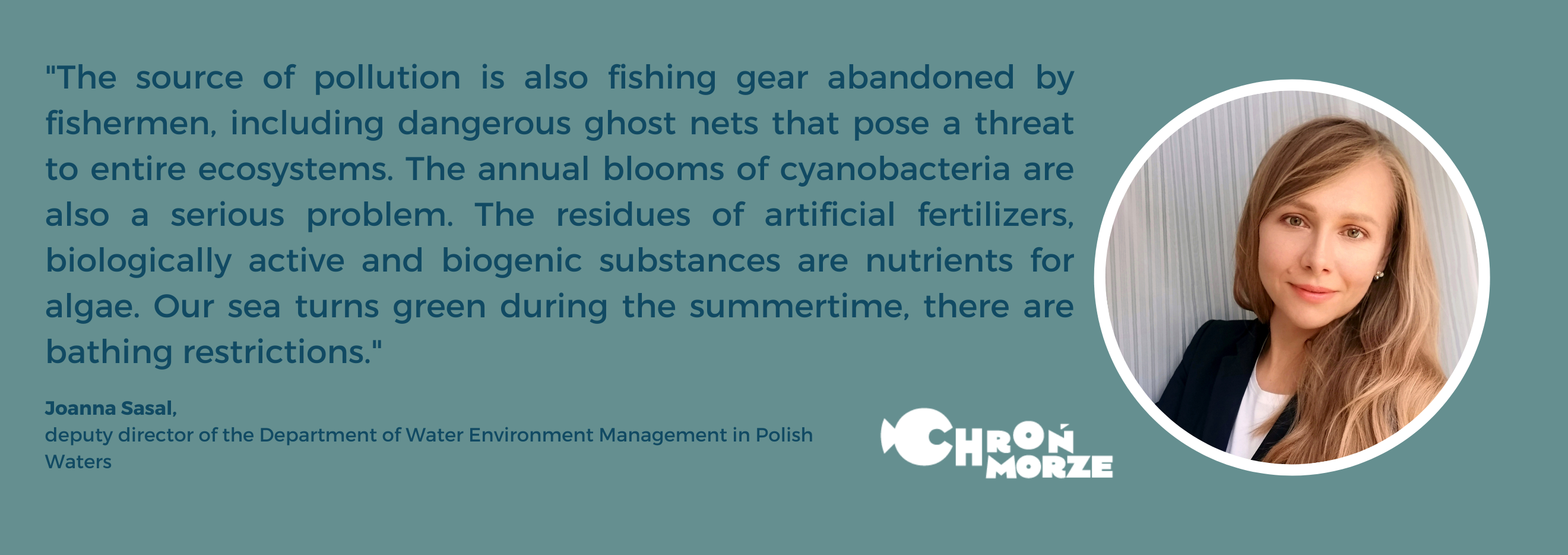Source: Sygnały Dnia, Polskie Radio, 3rd of November 2021 r.
The Baltic Sea is one of the shallowest and most polluted seas in the world. The key threats to its ecosystem are progressive eutrophication (survival of the marine environment), intensive fishing and pollution of the marine environment. In 1997, the Helsinki Commission designated March 22 as the World Day for the Protection of the Baltic Sea to draw attention to the need for immediate action to improve its condition.
Nearly 80 percent pollution ends up in the sea from land. Their source is ourselves. Almost half of the waste in the Baltic Sea comes from households. – But that’s not all – emphasized Joanna Sasal, deputy director of the Department of Water Environment Management in Polish Waters.

In order to improve the condition of our sea, a comprehensive Baltic Sea protection program was developed. It involves 60 actions. – They concern, inter alia, strengthening the protection of certain species, activities related to the collection of waste from ships, activities aimed at reducing the phenomenon of ghost nets in the sea. We are talking about a whole package of measures which, we hope, will bring us closer to achieving our environmental goals, because we cannot dream of achieving them within six years, admitted Przemysław Gruszecki.